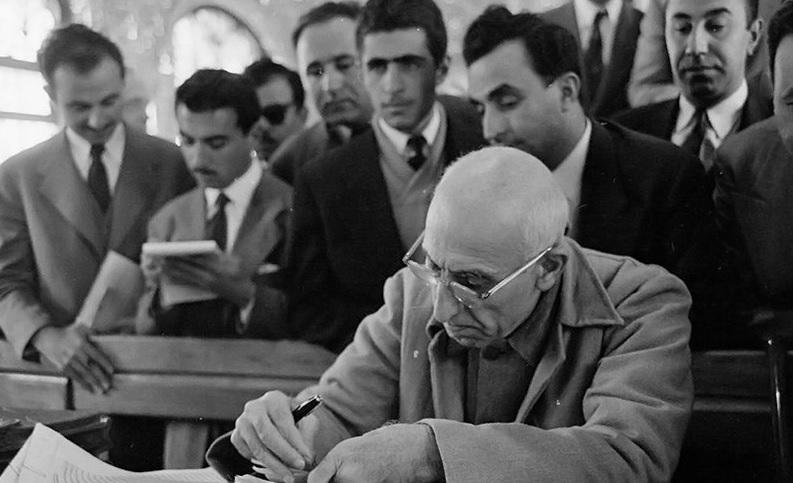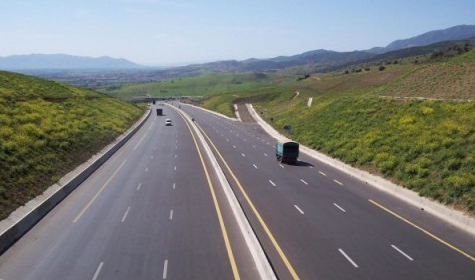
Including Iran and Saudi Arabia.. 6 new countries join as full members of the "BRICS"
Today, Thursday, 6 countries joined as full members of the "BRICS" group, namely Argentina, Egypt, Ethiopia, Iran, Saudi Arabia and the UAE.
The Final declaration states:
91. We have decided to invite the Argentine Republic, the Arab Republic of Egypt, the Federal Democratic Republic of Ethiopia, the Islamic Republic of Iran, the Kingdom of Saudi Arabia and the United Arab Emirates to become full members of BRICS from 1 January 2024.
Putin added, "It was a rich and important summit, and I congratulate all heads of state on the spirit of cooperation," calling for more cooperation, solidarity, and work towards development.
Indian Prime Minister Narendra Modi said that India supports the development and expansion of BRICS.
Modi pointed out that the development of the group is "a message that the whole world must hear," and it is an example of the amendments that must be made in various institutions.
In turn, Chinese President Xi Jinping said that the BRICS countries "have great influence and are responsible for establishing peace and stability in the world."
He also congratulated the countries that joined the "BRICS" and that made their decision to deal with developed and emerging countries, according to him.
During the speeches of the leaders of the countries at the closing session of the "BRICS" summit, Brazilian President Lula da Silva said that there is a one-sided world that threatens diversity and pluralism.
Lula added that the world is suffering from economic recession and lack of food security, saying: "We seek to reach a more just world."
For his part, the President of the UAE, Mohammed bin Zayed Al Nahyan, expressed his appreciation for the BRICS group's agreement to include his country in the group.
Bin Zayed said, in a tweet on the "X" platform, "We appreciate the agreement of the leaders of the BRICS group to include the United Arab Emirates in this important group."
He continued, "We look forward to working together for the prosperity and benefit of all countries and peoples of the world."
Iranian President Ebrahim Raisi confirmed today, Thursday, that "the expansion of the BRICS group shows that the unilateral approach is on its way to disappearing."
Raisi, during his meeting with his Chinese counterpart Xi Jinping, stressed that Iran's accession to the "BRICS" group would strengthen the bloc's opposition to American hegemony.
In a speech at the conclusion of the 15th BRICS summit, Raisi affirmed that Tehran supports the group's efforts to abandon the dollar in financial transactions, adding that "BRICS opens new horizons, and it is a way towards building a multipolar world."
Likewise, the Iranian president praised the decision of BRICS members to expand the group, which "provides grounds for continuing international development in a more equitable manner."
In his speech, the Iranian president reiterated his country's rejection of "all discriminatory and racist policies by the Israeli occupation against the Palestinian people."
For his part, Chinese President Xi Jinping said that his country is "ready to strengthen cooperation with Iran, within the framework of the BRICS group and other multilateral blocs."
On the sidelines of a BRICS leaders' summit in South Africa, Xi told Raisi that Beijing "is willing to strengthen friendship and deepen mutual trust with the Iranian side, and continue to support each other on issues of common core interests."
"Permanent membership in the Global Emerging Economies Group is a historic event and a strategic success for the Islamic Republic's foreign policy," Mohammad Jamshidi, political advisor to Iranian President Ebrahim Raisi, wrote on the X platform.
For his part, Ethiopian Prime Minister Abiy Ahmed praised the BRICS announcement of his country's accession to the group.
"This is a great moment for Ethiopia as BRICS leaders endorse us joining this group today," Abiy Ahmed said on X, formerly known as Twitter.
He added that his country is ready to cooperate with everyone for a comprehensive and prosperous world order.
The activities of the fifteenth international meeting of the BRICS 2023 summit began on Tuesday in Johannesburg, South Africa.
Yesterday, the leaders of the "BRICS" summit declared, in its second meeting, its firm stand against hegemony and neo-colonialism.
The leaders of 4 countries are participating in the summit personally, and they are Chinese President Xi Jinping, Brazilian President Lula da Silva, Indian Prime Minister Narendra Modi, and South African President Cyril Ramaphosa, while Russian President Vladimir Putin participates, via video technology, while the Russian delegation is headed. Participant in the summit, Foreign Minister Sergey Lavrov.
The announcement of the final statement of the “BRICS” summit … details affecting the United Nations and the Security Council to give more democracy and effectiveness to the organization
In their closing statement issued today, Thursday, the BRICS leaders expressed concern about the use of unilateral measures that negatively affect developing countries.
The BRICS leaders supported reforms in the United Nations, including the Security Council, in order to make the organization more democratic and effective.
The text of the final statement following the summit currently held in Johannesburg, South Africa, stated: “We express our concern about the use of unilateral coercive measures, which are inconsistent with the principles of the United Nations Charter and lead to negative consequences, especially in developing countries.”
He added, “We reaffirm our commitment to strengthening and improving global governance by promoting a more flexible, effective and efficient system … a democratic and accountable multilateral international system.”
According to the declaration: “We call for increased participation of emerging markets and developing countries in international organizations and multilateral forums.”
According to the declaration, the BRICS countries support the continuation of cooperation within the bloc to enhance the interconnection of supply chains and payment systems.
And the statement continued: “We reaffirm that openness, efficiency, stability and reliability are essential to addressing economic recovery and stimulating international trade and investment. We call for more cooperation between the BRICS countries to enhance the interconnection between supply chains and payment systems in order to stimulate trade and investment flows.
"The leaders of the BRICS group reaffirm their support for the establishment of an open and fair international trade system based on the rules of the World Trade Organization," the statement said.
In the statement, BRICS stressed the need to solve the Iranian nuclear problem through peaceful and diplomatic means, and in accordance with international law.
The statement added, "We call for strengthening arms control and non-proliferation, including the Convention on the Prohibition of the Development, Production and Stockpiling of Bacteriological (Biological) and Toxin Weapons and on Their Destruction, and the Convention on the Prohibition of the Development, Production, Stockpiling and Use of Chemical Weapons and on Their Destruction."
“We stress the importance of encouraging the use of national currencies in international trade and financial transactions, whether within the BRICS countries or with trading partners,” the statement said.
The statement added: “We call on the space agencies of the BRICS countries to continue to increase the level of cooperation in the field of exchanging data via satellites and their applications in order to provide information support for the economic and social development of the BRICS countries.”
And the statement continued: “We recall our national positions regarding the conflict in and around Ukraine, which were expressed in relevant forums, including the UN Security Council and the UN General Assembly. We note with appreciation the offers of mediation and the special good offices in this matter aimed at resolving the conflict by peaceful means through dialogue and diplomacy, including the peace mission undertaken by African leaders, and the proposed path to peace.
"Recognizing that BRICS countries produce a third of the world's food, we reaffirm our commitment to strengthening cooperation in agriculture and developing sustainable agriculture for BRICS countries to improve food security within BRICS countries and around the world," the statement added.
According to the statement: “BRICS countries appreciate the great interest shown by the countries of the Global South in BRICS membership.”
"We stress the need to help countries going through the post-conflict stage for recovery and development, and we call on the international community to help countries achieve their development goals," the statement said.
The document stated that “Brazil, India, China and South Africa express their full support for Russia, regarding its presidency of the “BRICS” group, in 2024, and the holding of the sixteenth “BRICS” summit in the Russian city of Kazan.










































